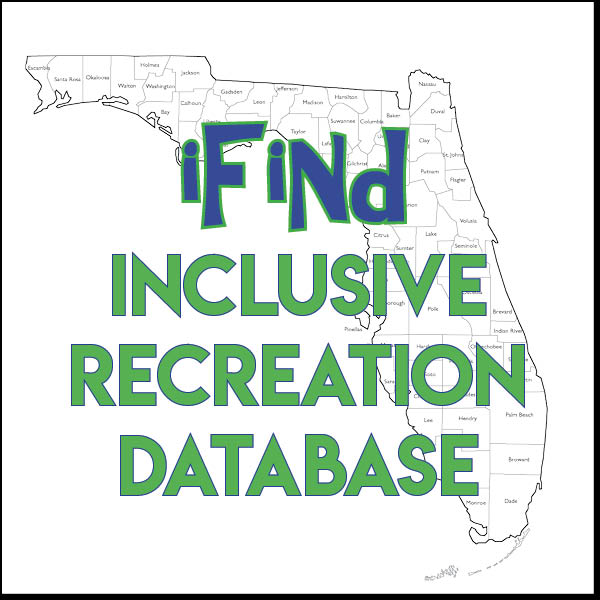President's Message
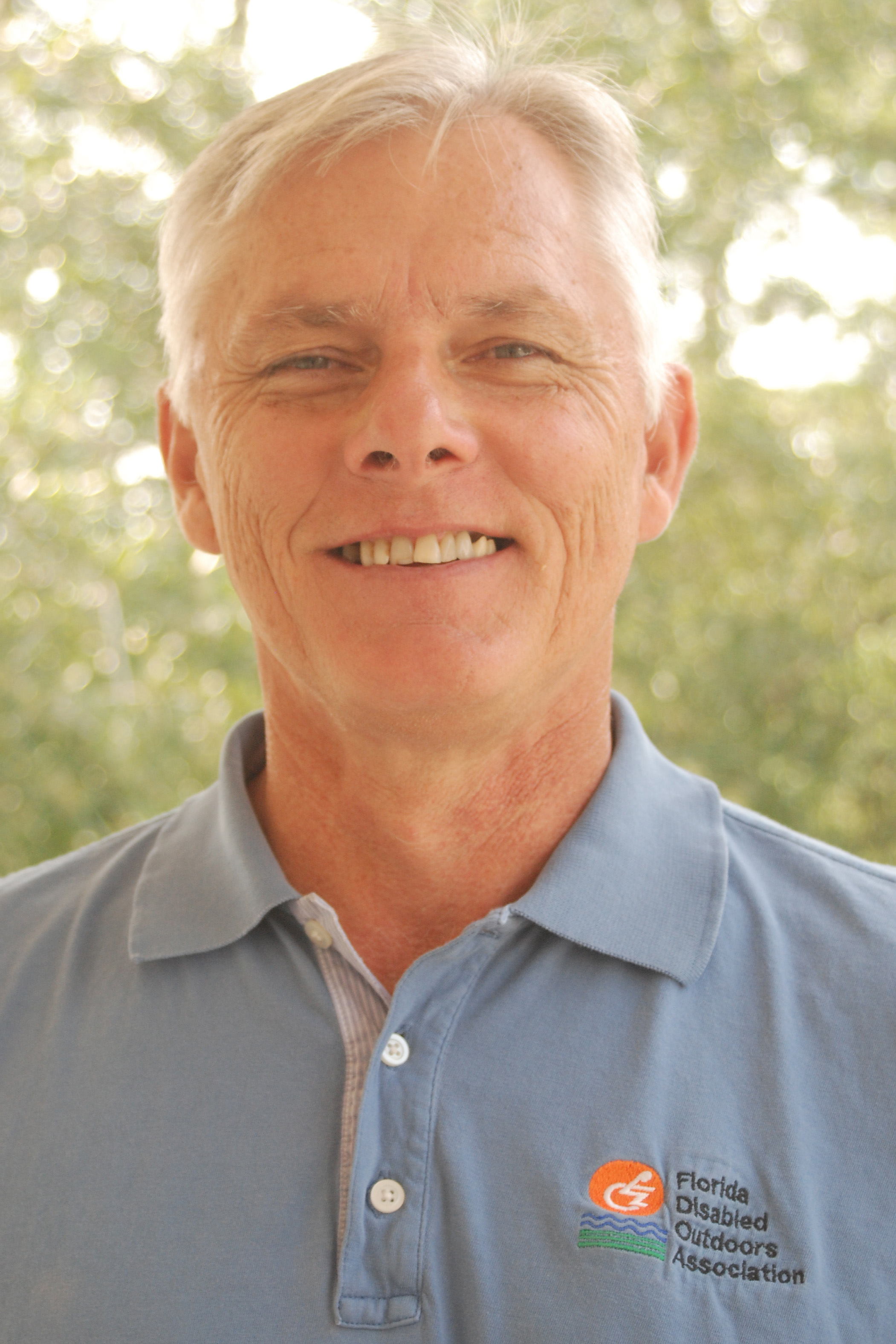 Florida is a Mecca for outdoor recreation. As a native, I have been fortunate to have enjoyed many outdoor adventures that have been available for me, my family, and my friends over the years. Going to the beach, hunting, and fishing have been favorite activities of mine my whole life. It is no surprise that my favorite activities are also the top three identified for other Florida residents. Florida is a Mecca for outdoor recreation. As a native, I have been fortunate to have enjoyed many outdoor adventures that have been available for me, my family, and my friends over the years. Going to the beach, hunting, and fishing have been favorite activities of mine my whole life. It is no surprise that my favorite activities are also the top three identified for other Florida residents.
The Statewide Outdoor Recreation Plan (SCORP) compiles research and reports on outdoor recreation users - both residents and visitors. Department of Environmental Protection (DEP) facilitates this program for planning and guidance to meet our State needs and demands. Beaches and wildlife viewing, which includes hunting, and fishing are the top three outdoor activities in Florida.
The FDOA has been working for over twenty five years to promote and advocate for the health benefits of recreation and active leisure for all of our citizens. We embrace the diversity of people and of activities on our state’s recreation and conservation lands. We support and work to incorporate accessible and inclusive destinations and programs for outdoor recreation.
SCORP is required by the Federal government to include our eligibility for the land and waters conservation funding that is dedicated to enhance recreational opportunities. The top four priorities of Florida’s SCORP are:
1. Promoting health benefits
2. Improving public access
3. Promoting economic benefits and funding recreation programs
4. Reconnecting people to the outdoors
We are proposing a partnership for Florida Disabled Outdoors Association (FDOA) with DEP to help implement the goals and strategies of the SCORP. We are planning a pilot project to provide consulting and other services for the planning, development, and management of our state conservation lands and waters.
The first goal of this collaboration will be to enhance public access, diversity, inclusion, and Americans with Disabilities Act compliance. The second goal is to enhance health promotion efforts. The third goal is to promote outdoor recreation tourism and visit-ability.
We are proposing a collaborative effort between FDOA and DEP along with the representation from all seven of the agencies that receive state lands and waters trust funding, and establish participation of non-government organizations and other public recreation providers as well as other recreation stake holders. Our FDOA proposal is supported by section 258.004(3) of Florida statutes that directs DEP to assemble and disseminate information relative to recreation. This partnership will assist DEP to implement the goals and strategies of SCORP.
This FDOA project will coordinate outreach and activities to raise awareness, to provide education, motivation, resource referral, and supports to enhance active leisure on state lands and to promote accessible inclusive outdoor recreation.
ACTIVE LEISURE FOR LIFE!
Executive Director's Message - Recreation – Much more than just Fun and Games!
 There has been a lot of research that has come out recently that illustrates that recreation and active leisure is more than just fun and games. It is an critical component of health and wellness. According to the Centers for Disease Control, There has been a lot of research that has come out recently that illustrates that recreation and active leisure is more than just fun and games. It is an critical component of health and wellness. According to the Centers for Disease Control,
“Adults with disabilities are 3 times more likely to have heart disease, stroke, diabetes, or cancer than adults without disabilities. 1 in 2 - Nearly half of all adults with disabilities get no aerobic physical activity, an important health behavior to help avoid these chronic diseases.”
There is a need for an inclusive health and fitness program that educated people with disabilities and their families about available resources and provides motivation to pursue those resources. According to the Inclusive Fitness Coalition,
“People with disabilities continue to be excluded from health promotion and fitness because of the barriers they experience getting to and into facilities, finding accessible exercise equipment and programs, and locating a fitness professional who they can afford and is knowledgeable about their disability.”
Health and wellness efforts have proven to provide improved physical, mental, emotional, social and vocational well-being for persons of all abilities. Inclusive community health and wellness activities advance positive integration into the broader society, increase the utilization of natural supports, enhance self-esteem and individual competency, and also promote self-directedness and help acquire job development skills. Leisure time physical activity and recreation improve quality of life for all.
One of the major issues that we face is a lack of awareness about the resources in our own communities. Some of you may not know that FDOA has an online Accessible Inclusive Recreation Resource Referral Network that is sortable by Florida county and by type of activity. I encourage you to check it out if you haven’t done so recently. If you see something that should be there and isn’t, please email [email protected]. We try to keep it updated, but we depend on help from people in the community.
SportsAbility is coming up April 7-9, 2016 in Tallahassee. That is a free way to check out just about any recreation pursuit you can imagine. It is a great way to see the types of activities that interest you. People of all abilities are encouraged to attend. This is not a program just for people with disabilities. There is also a resource expo to show the latest in products and programs. If you don’t live in Tallahassee, I encourage you to take a road trip. The three days of fun will be worth the trip!!
Rock Climbing Helping Persons with a Traumatic Brain Injury or Other Disability
By Philip Parga, FDOA Recreation Management Intern
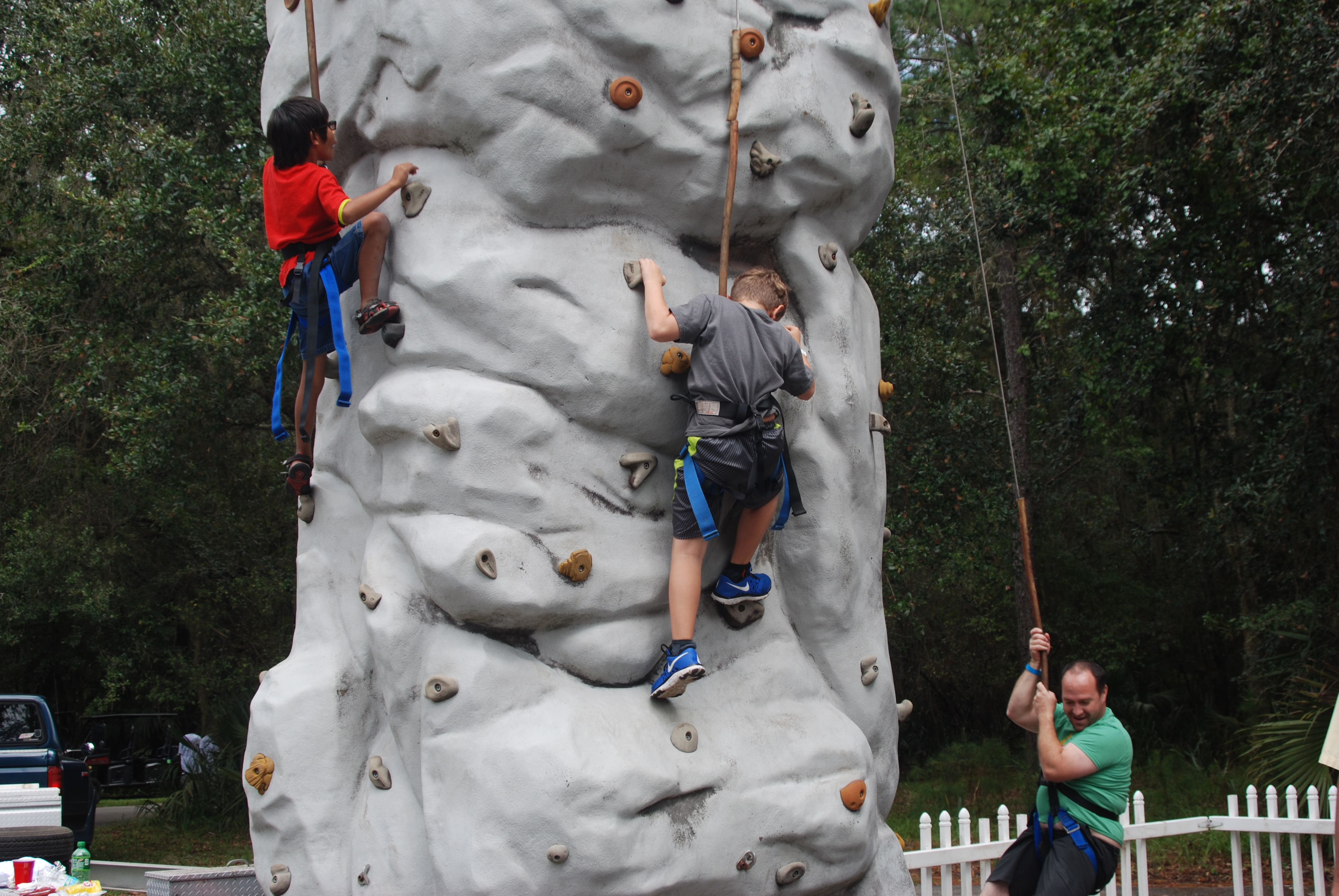 “I simply don’t like the word can’t, - and a lot of people with disabilities hear that word frequently.” Said Sophie Charles a climbing instructor in Great Britain who believes there are therapeutic benefits in rock climbing. She has teamed up with Castle Climbing Centre in London England to bring persons with traumatic brain injuries a series of rock climbing sessions that is inclusive for all. “Aside from dangling by your fingertips on a cliff edge, rock climbing promotes hand-to-eye coordination, awareness of balance, physical strength, communication and sensory awareness. Because key moves are learned and repeated constantly, it’s an activity which encourages neuroplasticity – the brain’s ability to reorganize its neural pathways in response to the environment; essentially the more you use a muscle, the stronger it will get.” (http://www.theguardian.com/lifeandstyle/2015/oct/16/how-climbing-helps-people-with-traumatic-brain-injuries-find-their-feet) “I simply don’t like the word can’t, - and a lot of people with disabilities hear that word frequently.” Said Sophie Charles a climbing instructor in Great Britain who believes there are therapeutic benefits in rock climbing. She has teamed up with Castle Climbing Centre in London England to bring persons with traumatic brain injuries a series of rock climbing sessions that is inclusive for all. “Aside from dangling by your fingertips on a cliff edge, rock climbing promotes hand-to-eye coordination, awareness of balance, physical strength, communication and sensory awareness. Because key moves are learned and repeated constantly, it’s an activity which encourages neuroplasticity – the brain’s ability to reorganize its neural pathways in response to the environment; essentially the more you use a muscle, the stronger it will get.” (http://www.theguardian.com/lifeandstyle/2015/oct/16/how-climbing-helps-people-with-traumatic-brain-injuries-find-their-feet)
Rock climbing isn’t just a one hit wonder that is only accessible in Great Britain, in fact the sport is growing bigger and bigger every year. In July of last year the United States held its very first Para climbing national championships. The event took place in Atlanta, Georgia at the stone summit climbing gym. It featured over 30 individuals plus seven youth athletes that competed in seven different categories including Leg Amputee, Arm Amputee, Visual Impairment, Neurological Disability and Seated. The event was held to select the United States team that will represent us at the Para climbing championships in Spain. Kareemah Batts, founder of the Adaptive Climbing Group, and fourth place medalist in the women’s lower extremity amputee category, said that while competing was exhilarating, the most exciting aspect of the weekend was making history. “You could feel the energy everywhere. It was different from anything we had ever done, and the positive and nervous energy was just oozing from every hold, every chalked limb, all over everyone’s faces,” she said. “We had so many supporters and spectators; I think they quickly saw that the next competition we are going to need more space.”(http://www.climbingbusinessjournal.com/paraclimbing-makes-leap-at-nationals/).
The nationals that took place in Atlanta were a much needed event that had been in the making for several years. In 2011 was the first ever para climbing world championships that took place in Arco , Italy and the United States had zero competitors at the competition. In 2012 sadly enough the United States still did not have a Para climbing group to represent the United States in the games, but did have two individuals who did want to go and compete. These two were chosen because they were the only two that actually wanted to go. The following year USA Climbing started its official Para climbing program. Ronnie Dickson one of the competitors who represented the United States and competed in the 2012 games became a member of USA Climbing’s Para climbing Committee and had this to say about the sport and its growth. “I am excited about the progress Para climbing has made in the US. We are much further past [where we were in 2012] and are at the point where we have a body of athletes big enough to where there has to be a way that we can objectively select our representatives and the spots have to be earned.” USA climbing believes that have already faced the biggest issue was getting started. What they need for Para climbing to continue to grow and increase the caliber of competitors that America sends to World Championships, they need more people with disabilities getting into the sport. One key component of this goal is for commercial climbing gyms to reach out to the adaptive community.
More information for People with a Spinal Cord Injury:
English / Spanish
More information for People with a Brain Injury:
English / Spanish
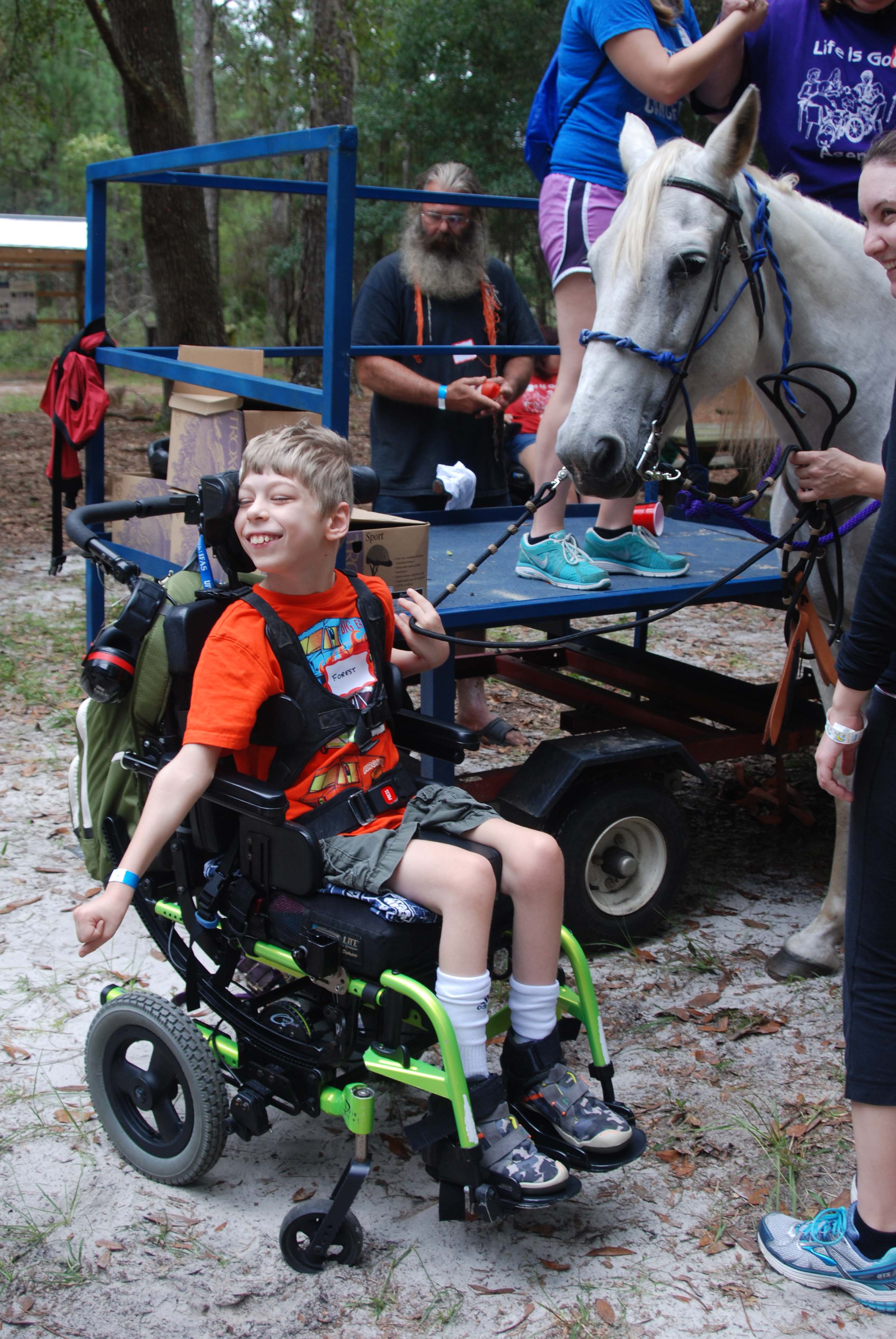
Celebrate the National Park Service Centennial and Explore Everglades National Park
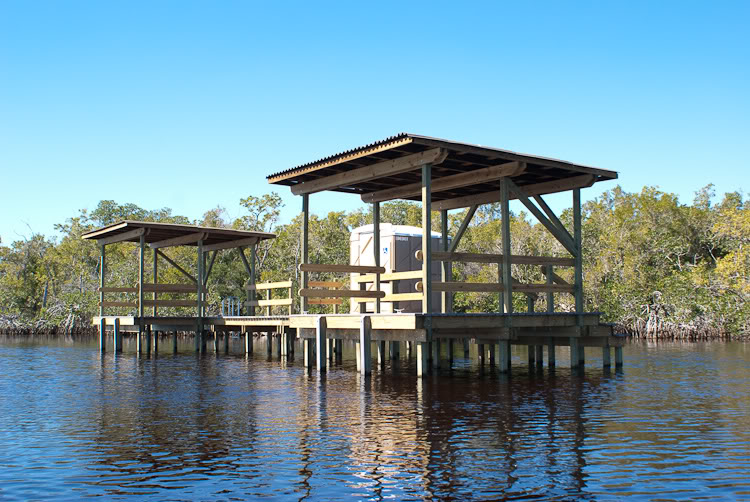 In 2016, the National Park Service will celebrate its centennial anniversary and there has been a lot of effort to bring people of all backgrounds into the national parks. Celebrate the National Park Service Centennial and explore Everglades National Park. In 2016, the National Park Service will celebrate its centennial anniversary and there has been a lot of effort to bring people of all backgrounds into the national parks. Celebrate the National Park Service Centennial and explore Everglades National Park.
Everglades National Park is the third largest National Park in the continental United States, preceded only by Death Valley National Park and Yellowstone National Park. There are nine different ecosystems or habitats that could be seen driving down the main road from Royal Palm to the Flamingo districts. Different ecosystems provide different forms of outdoor activities for all visitors to enjoy. The National Park Service recognizes that each of us have different abilities and needs, thus Everglades National Park has made strong efforts to make outdoor activities accessible to all.
All of the Visitor’s Centers in the park are equipped with fully wheelchair accessible ramps, clearly identified van accessible parking spaces, and an elevator at the Gulf Coast Visitor Center. Interpretive programs and displays, whenever possible, have been made accessible to visitors with limited visual capacities.
There are seven accessible trails scattered throughout Everglades National Park: Anhinga Trail, Gumbo Limbo Trail, Pineland Trail, Pa-hay-okee Overlook, Mahogany Hammock Trail, West Lake Trail, and Bobcat Boardwalk. All seven of them are less than three-fourths of a mile in distance and either have firm paved or boardwalk surfaces.
Throughout the year accessible free ranger-led guided tours are available, but more programs are offered during the busy winter season from November to April. The ranger-led guided tours are held on most of the seven accessible trails. Everglades National Park offers concession-led pontoon boat tours from Flamingo and Gulf Coast and a concession-led tram tour at Shark Valley. The boat and tram tours are wheelchair accessible.
Accessible frontcountry camping is available at both the Long Pine Key and Flamingo campgrounds. There are designated accessible campsites, wheelchair accessible restrooms, and clearly identified van accessible parking spaces. For the more adventurous campers, canoers and kayakers, the Pearl Bay Chickee is a backcountry campsite that is accessible to visitors with mobility impairments. After the four-hour canoe trip from the main road, visitors have access to handrails, a canoe dock, and an accessible chemical toilet. Please note that reservations are needed during the busy winter season.
The Access Pass is also available for people with permanent disabilities and could be used at any of the five federal land management agencies which include the National Park Service, Forest Service, Bureau of Land Management, United States Fish and Wildlife, and Bureau of Reclamation. Plan your next day-trip or extended camping trip at Everglades National Park and visit www.nps.gov/ever.
Help Support FDOA Programs - Donate Now
FDOA gratefully accepts tax deductible donations and in-kind gifts as a 501 (c)(3) nonprofit organization. (Federal ID# 59-3051552)
|
 There has been a lot of research that has come out recently that illustrates that recreation and active leisure is more than just fun and games. It is an critical component of health and wellness. According to the Centers for Disease Control,
There has been a lot of research that has come out recently that illustrates that recreation and active leisure is more than just fun and games. It is an critical component of health and wellness. According to the Centers for Disease Control,


 Florida is a Mecca for outdoor recreation. As a native, I have been fortunate to have enjoyed many outdoor adventures that have been available for me, my family, and my friends over the years. Going to the beach, hunting, and fishing have been favorite activities of mine my whole life. It is no surprise that my favorite activities are also the top three identified for other Florida residents.
Florida is a Mecca for outdoor recreation. As a native, I have been fortunate to have enjoyed many outdoor adventures that have been available for me, my family, and my friends over the years. Going to the beach, hunting, and fishing have been favorite activities of mine my whole life. It is no surprise that my favorite activities are also the top three identified for other Florida residents.  In 2016, the National Park Service will celebrate its centennial anniversary and there has been a lot of effort to bring people of all backgrounds into the national parks. Celebrate the National Park Service Centennial and explore Everglades National Park.
In 2016, the National Park Service will celebrate its centennial anniversary and there has been a lot of effort to bring people of all backgrounds into the national parks. Celebrate the National Park Service Centennial and explore Everglades National Park.